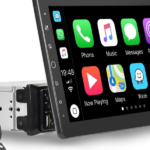If you’ve ever heard the name “Hyundai” and found yourself wondering how to pronounce it correctly, you’re not alone. This popular South Korean automotive brand has a global presence, and yet many people still get the pronunciation wrong. Whether you’ve seen one of their cars on the road or heard the brand name in a commercial, getting it right can feel like a tricky task.
So, how exactly do you pronounce Hyundai? Let’s break it down in this detailed guide. From understanding its Korean roots to learning the correct way to say it, we’ve got you covered. And yes, we’re diving into the facts, not just the “rules,” so you can sound like an expert the next time you talk about this giant in the automobile industry.
The Basic Pronunciation: “Hun-day” vs “Hyundai”
The first thing you need to know is that Hyundai is pronounced differently in English than it is in its native Korean. Many English speakers tend to mispronounce it by saying “High-oon-dye” or “High-uhn-dye,” but this isn’t quite right.
The correct pronunciation, especially in English-speaking countries, is “Hun-day” (with emphasis on the first syllable, and a soft “y” sound in the second). So, the first syllable sounds like “hun,” as in “honey,” and the second syllable is pronounced like the word “day.”
In its native Korean language, Hyundai is pronounced more like “Hyun-day” (with the “Hyun” resembling a short “oo” sound, like in “huh”). The key difference here is that the “Hyun” is softer and closer to the “u” in “huh” rather than the “high” sound that many people mistakenly use.
Why the Confusion?
The confusion surrounding the pronunciation of Hyundai likely comes from a few different factors. First, the word Hyundai is transliterated from the Korean alphabet (Hangul), which doesn’t directly correspond to English sounds. Therefore, there’s some interpretation involved when trying to pronounce it in non-Korean languages.
Second, the way words are pronounced in Korean can differ from how they’re said in English. For example, many sounds in Korean don’t exist in English, and vice versa. So, while Hyundai is a short and simple word in Korean, English speakers may struggle to get the nuances right.
Lastly, the brand itself has become a global player, meaning people from various countries with different language backgrounds have their own take on how to pronounce it. This variation only adds to the confusion. But don’t worry, we’ll guide you through all of this and help you get it right.
A Brief History of Hyundai
To understand why the pronunciation is what it is, it helps to have a little background on the company itself. Hyundai Motor Company, founded in 1967, is a subsidiary of the larger Hyundai Group, which was initially involved in construction. The company began by producing cars for the domestic market in South Korea before expanding globally.
Hyundai’s first major international success came in the 1980s with the launch of the Hyundai Excel, a small, affordable car that made waves in markets like the United States. Since then, the brand has evolved, and today, it’s known for its range of vehicles, including sedans, SUVs, and electric cars.
While Hyundai’s home base is in South Korea, it now has manufacturing plants and offices around the world, including in the United States, Europe, and India. As a result, many people from different regions have encountered the brand, leading to various interpretations of how the name should be said.
Breaking Down the Pronunciation by Syllable
Let’s dive a little deeper into how each syllable of Hyundai is pronounced:
- First Syllable: “Hun”
- The first syllable of Hyundai is pronounced “Hun,” and it sounds exactly like the word “honey.”
- This sound is similar to the “huh” sound in words like “hungry” or “hunch.”
- The “u” here is short, like in “fun,” not a long “oo” sound, so avoid saying it like “hoon” or “high.”
- Second Syllable: “Day”
- The second syllable, “day,” is pronounced just like the word “day.”
- This part of the pronunciation is simple and clear, without any tricky diphthongs or unusual sounds.
How to Avoid Common Mistakes
- Don’t Overemphasize the “Hy” Sound
- One of the most common mistakes people make is overemphasizing the “Hy” at the beginning of Hyundai. It’s not pronounced “High-uhn-day” or “High-oon-dye.” The “Hy” should sound like a soft “Hun” instead, without drawing attention to the “H” sound too much.
- Don’t Pronounce It Like “High”
- As mentioned earlier, the first syllable should sound like “hun” (similar to “honey”) and not like the English word “high.” If you’ve been saying “High-uhn-dye,” it’s time to rethink that approach.
- Avoid Adding Extra Syllables
- Another mistake people make is adding extra syllables, like saying “High-oon-dye” or “Hyoo-n-dye.” Stick to two syllables: “Hun-day.”
- Use the Correct Stress
- The emphasis is on the first syllable (hun), not the second one. So it’s “Hun-day,” with the emphasis on the “Hun.”
How Hyundai Wants You to Say It
When it comes to how Hyundai itself wants the name to be pronounced, the official stance is that the name should sound like “Hun-day.” The brand has made efforts to clarify this pronunciation in marketing materials and interviews, especially in English-speaking countries.
Hyundai’s commercials and advertisements often feature native Korean speakers saying the brand name, which helps English speakers get a better sense of the sound. If you’re ever in doubt, just remember that Hyundai is a global brand, and they want you to pronounce it in a way that’s recognizable to everyone, no matter where they are.
Global Differences in Pronunciation
Even though “Hun-day” is the most common pronunciation in English-speaking countries, there are some regional variations. For instance, in the United States, you’ll commonly hear it pronounced correctly as “Hun-day,” while in other parts of the world, especially in areas where English is a second language, some people may still say it as “High-uhn-day.”
In South Korea, the brand is pronounced with a slight “y” sound in the first syllable (almost like “Hyun-day”). So, if you ever visit Korea or hear locals talk about Hyundai, you’ll notice the pronunciation is just a little different.
Why Does It Matter How You Say Hyundai?
You might be wondering, “Does it really matter how I pronounce it?” Well, the answer depends on the context. While it’s not a dealbreaker if you mispronounce it in casual conversations, using the correct pronunciation can be a sign of respect toward the brand and its origins. Plus, getting it right is a small but effective way of showing that you’re knowledgeable about the company.
Furthermore, the correct pronunciation is essential in professional and formal contexts. If you’re in an interview or a business meeting discussing Hyundai, using the right pronunciation will likely leave a positive impression.
Tips for Remembering the Correct Pronunciation
- Think of “Hun” Like “Honey”
- Since “Hun” sounds like the first part of “honey,” try to imagine you’re saying “honey” but dropping the “ey” at the end.
- Focus on the “Day”
- The second syllable is easy: just say “day,” and you’re almost there.
- Practice Makes Perfect
- Practice saying the name out loud a few times until it feels natural. Try saying “Hun-day” with emphasis on the first syllable, and avoid overemphasizing the “Hy.”
Conclusion
In conclusion, pronouncing “Hyundai” correctly can seem tricky at first, but once you understand its roots and the right way to say it, you’ll feel more confident in any conversation about the brand. The proper pronunciation is “Hun-day,” with a soft “Hun” that sounds like “honey,” and the second syllable is simply “day.” While it may vary slightly in different regions, this is the standard pronunciation in English-speaking countries.
Getting the pronunciation right not only shows respect for the brand’s heritage but also helps you sound more knowledgeable in both casual and professional settings. So next time you talk about Hyundai, remember the key: it’s “Hun-day,” and you’ll be speaking just like the experts.
FAQs
1. Why is it hard to pronounce Hyundai correctly? The confusion around pronouncing Hyundai arises because the name is transliterated from Korean, where sounds don’t directly translate to English. English speakers often emphasize the “Hy” incorrectly or add extra syllables, which makes it difficult to get it right.
2. What is the correct pronunciation of Hyundai in English? The correct pronunciation in English is “Hun-day”, with the emphasis on the first syllable, “Hun,” which sounds like “honey,” followed by “day.”
3. Is it “High-uhn-day” or “Hun-day”? The correct pronunciation is “Hun-day.” Avoid the “High” sound in the first syllable, and stick to the soft “Hun” sound, similar to “honey.”
4. Do other languages pronounce Hyundai differently? Yes, in South Korea, the pronunciation would sound like “Hyun-day,” with a slightly different “Hyun” sound. However, in English-speaking countries, “Hun-day” is preferred.
5. Why does it matter how I pronounce Hyundai? Getting the pronunciation right shows respect for the brand’s cultural origins and helps you come across as more knowledgeable, especially in professional and formal contexts.
6. How can I remember the correct pronunciation of Hyundai? Think of the first syllable like “honey” (but without the “ey” at the end), and remember that the second syllable is simply “day.” Practice saying it a few times out loud, and you’ll get the hang of it.
Get the latest scoop and updates on playhop




